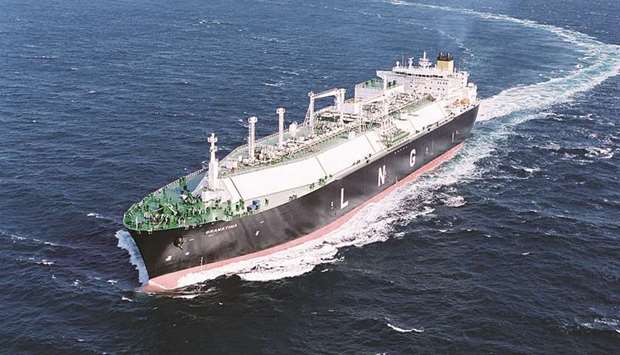Some of the world’s biggest buyers of liquefied natural gas are signing mid-term supply deals, a move seen as protection against a further rise in prices that are already at the highest in four years.
A unit of BP signed a three-year supply agreement with Exxon Mobil Corp’s Papua New Guinea LNG project on Friday, following a similar deal by PetroChina International last month. Japan’s Jera Co, one of the world’s biggest buyers of gas, inked an agreement for the same duration with Abu Dhabi Gas Liquefaction Co’s LNG project last week.
“Buyers have been concerned about the strength of prices this summer and coming winter and may have expectations of further increases,” Wood Mackenzie Ltd analyst Nicholas Browne said in an e-mail. “For a portfolio player like BP, it gives them additional supply and optionality close to key Asian markets over this period.”
LNG spot prices in Northeast Asia are averaging the highest since 2014 at around $9.50 per million British thermal units through the first seven months of this year, according to World Gas Intelligence. Prices last year surged on the back of China’s soaring consumption growth and this year’s rally comes before winter, when use across the region typically peaks.
Exxon Mobil is negotiating another mid-term LNG deal from the PNG LNG facility in lieu of spot sales, partner Oil Search Ltd said on Friday when it announced the deal with BP. More mid-term deals are likely at least until 2023 or 2024, when the next round of major LNG supply projects come online, according to Wood Mackenzie’s Browne.
“The uptick in demand and spot prices over the last year has brought home the risks to buyers of being exposed to the spot market too much,” said Saul Kavonic, Credit Suisse Group AG’s director of energy research in Asia. That has created “more deal space for buyers and sellers to agree on mid-term contracts.”

LNG spot prices in Northeast Asia are averaging the highest since 2014
